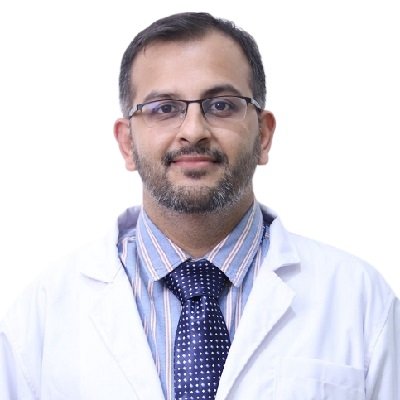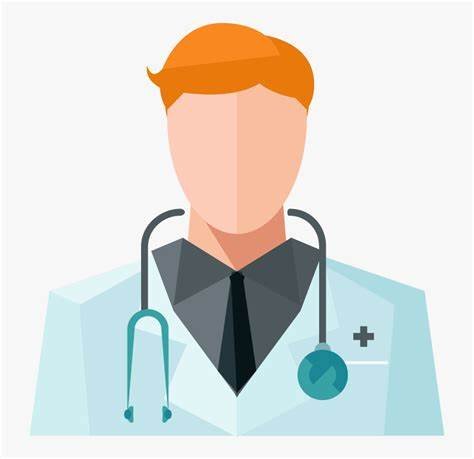Home » Speciality » Nephrology
NEPHROLOGY TREATMENT
AND SURGERY

Why Choose Wockhardt Hospitals
for Nephrology Treatment?
Wockhardt Hospitals is one of the fastest growing healthcare centers, with a solid track record of providing world-class treatment for a full variety of medical problems through individualized and ethically enhanced healthcare approaches. Our healthcare professionals at Wockhardt Hospitals are skilled in the application of specialized technologies and minimally invasive surgical methods to provide the best nephrology treatment in India for a complete range of urological diseases. We have board-certified renal disease specialists that are well-regarded both nationally and internationally. We provide a wide selection of medicines from professionals who conduct clinical trials and collaborate with various research institutes.
The Wockhardt Hospital’s amenities include cutting-edge operating rooms, an emergency department, intensive care units (medical and surgical), a critical care unit, a renal unit, an imaging department, laboratory services, and a pharmacy. The infrastructure has been created so that patients may feel comfortable while receiving treatment, and the labs, wards, and operating rooms are all well-equipped using the latest modern medical equipment.
Renowned Nephrologists
at Wockhardt Hospitals
- Mumbai Central
- Mira Road
- Nagpur
- Rajkot
What is Nephrology?
Nephrology is a field of medicine that deals with kidney problems. It is focused on the diagnosis, treatment, and management of kidney functions, as well as renal (kidney) replacement treatments such as dialysis and kidney transplantation.
The kidneys are bean-shaped organs that are positioned on either side in the retroperitoneal area of a human body. The kidneys are in charge of eliminating waste and extra fluid from the body. They are essential for regulating electrolyte concentrations, which might fluctuate owing to a variety of illnesses or medications, and for maintaining fluid consumption. Many kidney problems are systemic illnesses, meaning they affect more than just the kidney. Specialized care and medical attention are required for these conditions. A doctor who has received training in the diagnosis and treatment for nephrology (kidney diseases) is known as a nephrologist.
Patients with a range of acute and chronic renal illnesses can get quality healthcare at Wockhardt Hospitals’ Nephrology Division. With a variety of non-invasive treatments, our nephrology specialists continually devote their attention, effort, and expertise to assisting patients in maintaining the health of their kidneys.
What are the Major Causes and Symptoms
of Nephrology Disease?
Symptoms
The symptoms and indications of chronic renal disease gradually appear if kidney damage develops slowly. An accumulation of fluid, bodily waste, or electrolyte issues can be brought on by kidney failure. Depending on the extent to which it is, loss of kidney function can lead to:
- Nausea
- Vomiting
- Itchy, dry skin
- Muscle cramps
- Reduced appetite
- Fatigue and weakness
- Reduced mental clarity
- Sleep problems
- Urinating more or less
- Swelling in the ankles and feet
- High blood pressure (hypertension)
- Breathlessness, if fluid accumulates in the lungs,
- Chest pain if fluid gathers around the lining of the heart.
Kidney disease symptoms and signs are frequently vague. They can also be brought on by other diseases. As your kidneys can adapt to decreased function, you might not exhibit symptoms until after there has been irreversible damage.
Causes
When a disease or condition affects kidney function, chronic kidney disease arises. Over the course of months or years, the kidney damage gets worse. Chronic kidney disease is brought on by a variety of conditions, including:
- Type 1 or type 2 diabetes
- High blood pressure
- Glomerulonephritis: an inflammation of the kidney's filtering units.
- Interstitial nephritis: swelling of the tissues around and within the kidney tubules.
- Hereditary kidney illnesses such as polycystic nephrosis.
- Persistent blockage of the urinary system is caused by diseases, including an enlarged prostate, kidney stones, or certain cancers.
- Vesicoureteral reflux: a disorder that results in pee backing up into your kidneys.
- Recurrent kidney infections
Diagnostic Tests for
Nephrology Treatment
In their early stages, many kidney disorders go undetected. Your doctor can more accurately determine and confirm the presence of any renal disease you might have by having you checked out through various types of diagnostic tests. The following tests can be used to assess how effectively your kidneys are functioning to plan the nephrology treatment plan:

- Blood Test
- Urine Test
- Kidney/Renal Ultrasound
- Computed Tomography (CT) Scan/ CT Angiography
- Kidney Biopsy for Microscopic Analysis
- Renal MRI Scan
Procedures Undertaken
for Nephrology Treatment
Procedures Undertaken for Nephrology Treatment
Nephrectomy (Kidney Removal)
A kidney can be removed surgically in its entirety or partly by a nephrectomy. It is often carried out either to treat kidney cancer or to remove a benign tumor. Also, it can be used to take a healthy kidney from a living or deceased donor for transplantation as well as to treat various renal illnesses and traumas.
Kidney Transplant
Minimally Invasive Nephrology Surgery
Our skilled surgeons execute a variety of minimally invasive procedures, such as laparoscopic nephrectomy and lithotripsy (types of Nephrology surgery), with little to no blood loss and fewer adverse effects. Shorter hospital stays and quicker surgical recovery times are two other possible advantages of these minimally invasive approaches.
Dialysis Care
When your kidneys are unable to filter the blood properly, an artificial process called dialysis is used to remove waste products and extra fluid. Patients who have ESRD, acute renal failure, or both regularly undergo this procedure. Until your kidneys heal or you get a kidney transplant, you must take it.
Continuous Renal Replacement Therapy (CRRT)
In order to identify and assess blockages, damage, or anomalies inside the blood arteries throughout the body, a medical procedure called angiography combines a CT scan with an intravenous injection of a specific dye. The blood veins in your body are shown in three dimensions using X-rays during a CT scan, a non-invasive diagnostic procedure. It is a slow and effective dialysis process that is done under continuous observation without the need for nephrology surgery.
What happens during a
Nephrology Treatment?
Certain kidney diseases are treatable depending on the underlying reason. Yet, chronic kidney disease usually has no treatment but nephrology surgery or kidney transplantation. Therapy often entails steps to lessen complications, treat symptoms, and slow the spread of the disease. You may require treatment for end-stage kidney disease if your kidneys suffer substantial damage. The primary treatments are:
Lifestyle Changes – People with kidney disease are typically advised to adopt the following lifestyle choices:
- Stop Smoking
- Eat healthy diet
- Do regular exercise
- Control or stop alcohol consumption
- Limit your salt consumption
- If you're overweight or obese, lose weight
- Avoid using NSAIDs (non-steroidal anti-inflammatory medicines) without a doctor's prescription unless necessary.
Medicine – Although there isn’t a treatment, especially for kidney damage, there are several issues that might contribute to the illness and the consequences that may arise as a result. For the following various conditions, you might need to take medication:
- High Blood Pressure
- Diabetes
- Elevated Cholesterol
- High potassium levels
- Anemia
- Water Retention
Dialysis – A small percentage of Nephrology patients will gradually lose their ability to function via their kidneys, requiring nephrology surgery or sometimes kidney transplantation. There should be sufficient time to organize the following phase of your treatment as this often occurs gradually. Dialysis is a possibility at this stage. The waste and extra fluid from the blood are removed using this technique. Dialysis treatment will often need to last a lifetime if you don’t obtain a kidney transplant. If your kidney function becomes significantly diminished, discuss with your doctor the benefits and drawbacks of each form of dialysis and which type you would like.
Instead of just managing renal diseases, our goal at Wockhardt Hospitals is to improve quality of life and offer world-class treatment for Nephrology problems. Our healthcare delivery system is geared towards delivering open, affordable services that are in line with the expanding local needs.
Nephrology Blogs
FAQs
Q. What are do's and don'ts before nephrology surgery?
- The day before surgery, have light meals till noon.
- Keep yourself hydrated
- Drink only clear liquids up to two hours before hospital arrival.
- Avoid foods with a lot of salt in them.
- Regularly check in with your medical team and carefully heed their recommendations.
Q. How successful is nephrology surgery?
Q. Are there any long-term side effects of nephrology treatment?
Q. How long does a nephrology treatment take?
Q. What are the different types of nephrology treatment available?
- Continuous Renal Replacement Therapy (CRRT)
- Peritoneal Dialysis (CPD)
- Plasma Dialysis
- Liver Dialysis
- Kidney Transplant
- Combined Kidney & Liver Transplant and Kidney Biopsy
Q. What is the Nephrology Surgery cost in India?
Nephrology surgery costs in India normally range between Rs. 2,50,000 and Rs. 5,00,000, depending on the intricacy of the procedure. However, the cost of minimally invasive surgery could be higher. The cost may vary from state to state, depending on the hospital’s condition and the services it offers.



















